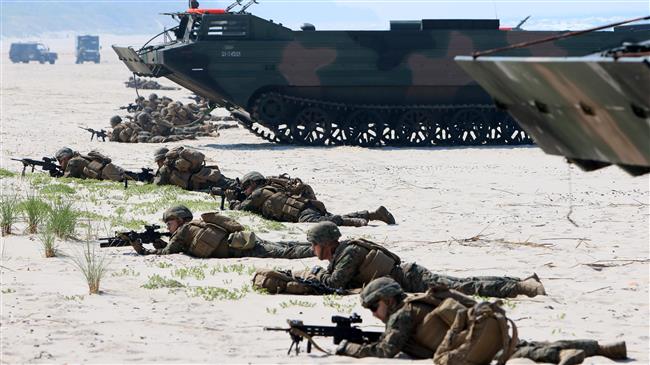EU plans to strengthen military readiness, cut reliance on US
The European Union must strengthen its defenses, spend more and be able to act independently of the United States, the bloc’s leaders said in a summit statement released early on Friday, pledging to push ahead with a new military cooperation pact.
The pledge came after leaders met NATO Secretary-General Jens Stoltenberg on Thursday and it includes a commitment to spend more on defense after years of cuts, a central demand of US President Donald Trump, who will attend a NATO summit in July in Brussels.
“Europe must take greater responsibility for its own security and underpin its role as a credible and reliable actor and partner in the area of security and defense,” the summit statement said.
Britain’s imminent departure from the European Union has also given impetus to the bloc’s plans, both because London blocked EU defense cooperation for years and also as the bloc compensates for the loss of the EU’s highest-spending military power.
The summit declaration also cemented a commitment to an EU defense pact signed in December that aims to develop weapons and deploy troops together after years of duplication and competing military structures.
“The Union is therefore taking steps to bolster European defense, by enhancing defense investment, capability development and operational readiness. These initiatives enhance its strategic autonomy while complementing and reinforcing the activities of NATO,” it said.
Trump’s “America first” policy and his conflicting statements on NATO and the European Union, as well as what he sees as Europe’s underfunded militaries, have also prompted the bloc to consider much closer EU defense coordination.
However, the bloc still insists that the US-led NATO alliance remains responsible for defending Europe, while France is seeking to keep Britain close to EU military structures through a French-led crisis response force that nine European countries launched earlier this week.
Diplomats present at the two-day summit in Brussels described the debate over security and defense as consensual, despite tensions over migration that held up the formal adoption of the statement on Thursday evening.
Stoltenberg said on Thursday that the US-led NATO alliance and the European Union were also cooperating on “military mobility, infrastructure, legal hurdles, to make sure that we are able to move forces quickly through Europe if needed.”

Russia’s military modernization and its large-scale exercises along NATO’s eastern flank have raised concern in the alliance that it must do more to deter Moscow from any repeat of the Russian 2014 annexation of Ukraine’s Crimea.
However, it is unclear Britain will cooperate with European Union security and intelligence agencies once outside the bloc.
At the summit dinner, Prime Minister Theresa May made a plea for allowances for London and to have access to EU databases, warning that European security was at stake.
May said sharing information freely helped solve serious crimes and prevent militant attacks. “Our ability to do so is being put at risk,” May told other EU leaders at the dinner, according to a senior British government official.
(Source: Reuters)




